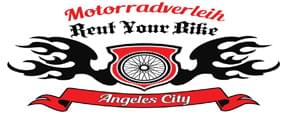Member
diiiiiiiiiiiiiiiiiiiiiiiiii
maaaaaaaaaaaaaaaaaaaaaaaaaaak
Na bitte, geht doch ohne Anglizismen.
Me lop Thai inglit velly mach.
Schock dee
Hilltribe
Danke das kann sehr helfen!Member hat gesagt:Hier mal ein kleiner Einführungskurs in Thai-Inglit:
Ei häb bei postcard, bat ei häb no sa-täm. Ei mat go tu pot o-fid bei sa-täm. You see, Thai-English is not same like ours. Ai giib juu sam exa-pen:
noo-män bat = nomal bus
li-a-li = really
sa-mail = smile
sa-liib = sleep
sa-täm = stamp
se-pik = speak
di-sa-go = disco
ai-lei-juu = I like you
ai-lab-juu = I love you
ket-hao = guest house
check-bin = check-bill ***
häb = have
ju häb? = Do you have?
no häb = I dont’t have
thu-mad = too much
phom-phen = problem
pho-si-pen = possible
söö-wit = service
dschua = sure
wai = wife
ding = drink
tii = three or tree
botaa = brother
tai-ed = tired
fän = friend
yetteday = yesterday
If juu anderstän se rulet Thai se-pik, juu cän anderstän vely good. Juu oly mat know, that L at se end of word is sa-poken as N and S will be a T (noo-män bat). Between two consonants at beginning of a word you mat insert a vocal (sa-mail, sa-liib, se-pik). Two consonants at se end of word, forget se lat consonant (sa-täm). R juu not se-pik or se-pik at a L (botaa, li-a-li).
*** wobei auch das englische Wort check-bill in dieser Form gar nicht existiert, denn check und bill ist ein und dasselbe, einmal Am., einmal Br.


